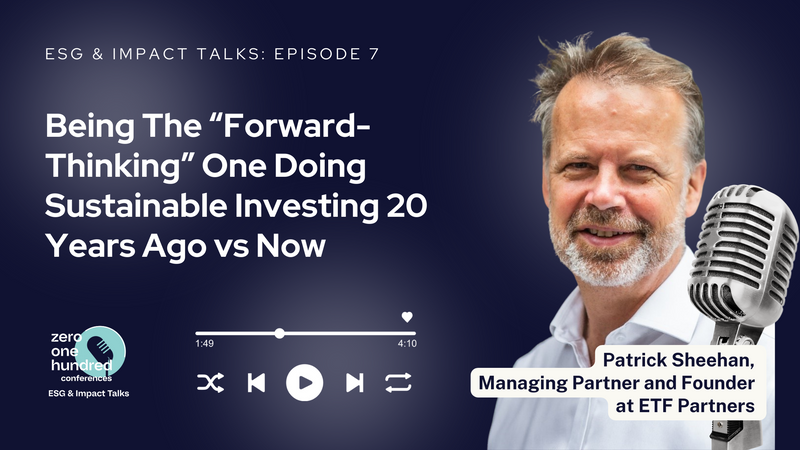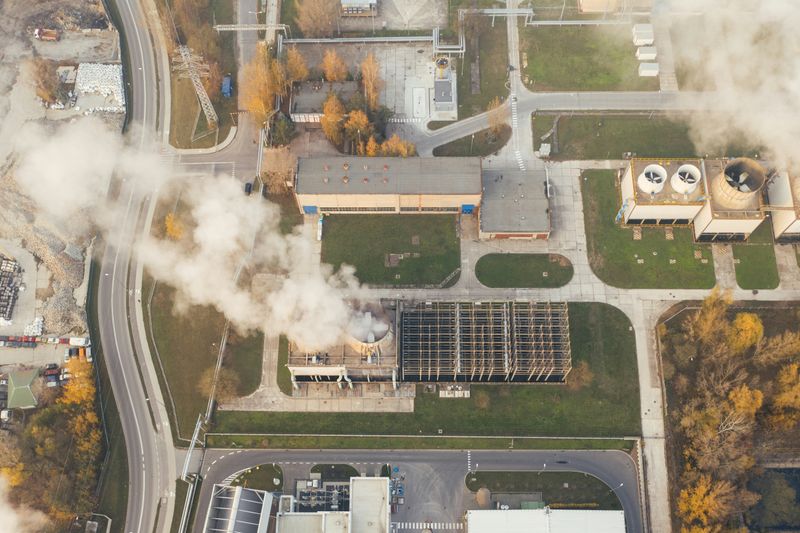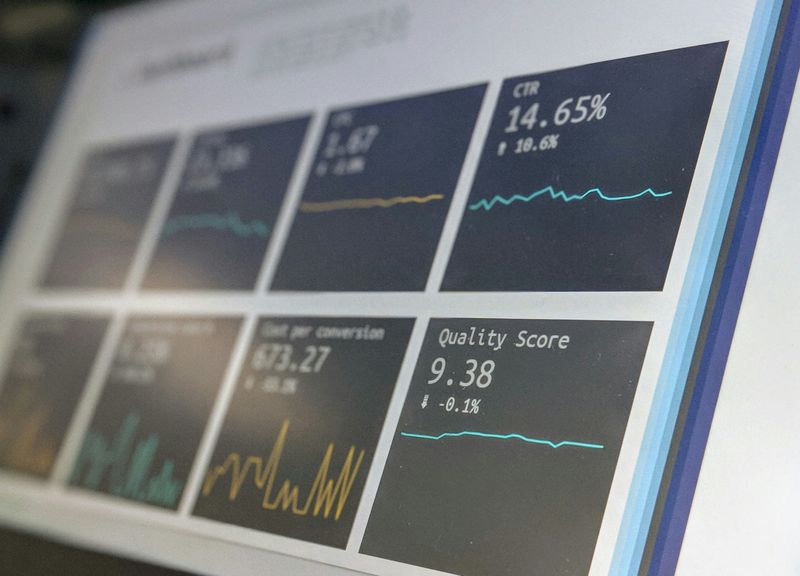In an era marked by a burgeoning awareness of climate change and sustainability, pioneers in environmental investing stand at the forefront of innovation and impact. We had the privilege of having Patrick Sheehan, Managing Partner and Founder at ETF Partners, a sustainable investment firm that has been around since 2006, as a guest at our Zero One Hundred ESG and Impact Talks.
Patrick boasts an extensive background in venture capital dating back to 1985 when he joined 3i. At 3i, Patrick played a pivotal role in establishing the venture capital practice and subsequently served as the founding Managing Director of its Silicon Valley operation. His leadership extends beyond ETF Partners, as he represents the firm on the Boards of ELeather, Wirepas, Telensa, Zeelo, and Tomorrow. Patrick's influence in the venture capital landscape is further exemplified by his tenure on the Executive Committee and Board of Invest Europe from 2007 to 2010, during which he chaired the Venture Capital Committee.
Listen to the podcast here.

In 2006, I was thinking about that year. That year, I was in business school learning that the purpose of business was to maximize profits. What made you think back then about what was happening in the market that made you think that it was a good opportunity to come up with the idea of ETF?
Well, I don't think we came up with the idea I was thinking about the market first quite honestly. If I tell you a bit of background, I'd come back from Silicon Valley running a venture firm there. It was post-the dot-com bubble. I knew I wanted to do my own thing. I was also very convinced that climate change was real. If it was real, it wasn't going to go away. It was just going to get worse. We'd just moved continents really for family and because of our kids. It led to a bit of deep thought about what would be worthwhile and how on Earth would I explain that I believed in climate change and did nothing. To my children. It then occurred to me that venture capital could and should be used for something more than just dot-com bubble companies, and it could be used to fund innovations that could address climate change. That seemed worthwhile. It also was an area where Europe clearly had a lead. It's important to be in the right place as well as the right time. Europe certainly felt like the right place. From that, there was a period of research to figure out, whether is there really a market here, and how big is it?
Frankly, it felt like it should be a huge market, so it felt worthwhile on every level.
Great, then the financial crisis came. How did you overcome that period with a fund that back then was the "eccentric" fund in the group?
You use the word eccentric because I have used that word historically to explain doing something radically different. I could more politely call it entrepreneurial or evangelical, but you can also say it's eccentric. We had to believe that it was important, and that belief sustained us, I think, as it does with entrepreneurs. We felt this was an important thing to do. When we had decided to found a firm and got it up and running, clean tech became a thing around us. We never set out to be a clean tech firm, but we were racketed alongside those firms that did start. Broadly, nearly all those firms went out of business. We survived, I think because we have a certain bloody-mindedness and resilience that you might associate with entrepreneurs, but also because we took a good hard look at what we did well and less well. We were very honest with our backers and we explained what we were going to change and why we believed it would work. They trusted us, for which I'm very grateful. By the way, they also trusted us because they could look beyond that first fund and at a 20-year track record, which I think was probably very good through 3i and so on.
But actually, there was a lot of trust involved that there was a real need and a real opportunity because of that, and we were learning and changing the right way. Actually, through that difficulty, I think we became a much better business.

How did you explain the concept of sustainability to your LPs back then?
Well, we didn't use the word, and it wasn't really a word. In fact, It was only years later that we sat down and decided consciously to pick the word sustainability. We wondered whether we should say impact or other words, but impact felt too much like charity back then. We decided, years after we started to talk about sustainability through innovation, to try and encapsulate what we were doing. But when we started, we couldn't say that. We had to explain it much more simply. We went to people like the EIF and some very big investors and said, If you believe climate change is real, then there will be the need for radical change. In that radical change, there is radical opportunity. This is happening now, and you should find the most experienced team possible to address it. Then we pause theatrically and say, Oh, there isn't We've created a fund to address this need. That was effectively the pitch, and it worked. What we did not say is we'll aim to be a top quartile fund or whatever, because I always feared that people would say, That's interesting. Who are the others? We essentially said, made a virtue out of the fact that we don't think there are others.
Where were your LPs from when you started fundraising?
We were backed by a very big firm called Swiss Reinsurance at the time and by the European Investment Fund, who, for various reasons, believed in what we were saying. I have to say, by the way, particularly what to single out the European Investment Fund has been a great supporter of what we're doing and a great supporter of sustainability and positive impact. I take my hat off to them.
It's great that you had a good partner who believed in the purpose of the company from the beginning. But in these last 20 years, how has the landscape changed? Because back then, as you said, there were no other funds doing what you were doing.
When we started, then there was a rash of new funds called CleanTech Funds. I never really liked the term. I still don't like it even now. They came and went. We found for the first decade of our existence as a business because we're a business, not just a fund. We had to work hard. If we turned up at a venture capital conference, we were probably the least popular people in the group. You fast forward to today, it's the other way around. It's extraordinary. Now, I guess we kept going because we did think what we were doing was important and there would be a huge need and huge opportunity. I think it just took longer to materialize than we ever expected. Then it's begun to materialize extraordinarily rapidly in the past two or three years. We're in a very different world today.

When did you start seeing the pace get faster?
Probably around 2018, there was a notable change in sentiment, and I would attribute it to something really simple. This is a simplification, but it's a helpful one, I think. Around that period, we saw our market move from technology push to market pull as very large corporations from that period became much more engaged in climate change. We could talk suddenly to the CEOs about it, and they would agree rather than disagree. They wouldn't be offended when we said the business needs to change. They'd just say, Yes, how? That's helpful. To my mind, 2018 was a period when things began to change. Then, of course, in the pandemic, things accelerated. They accelerated in the tech industry, but it was also a period where people realized that big systemic risks could happen. As they looked at the pandemic, of course, it was in many ways catastrophic, but it made people worry about climate change. People thought broadly, Oh, my God, these things happen. What should we do? We saw another acceleration. And so those two waves were, in combination, more dramatic and more rapid than we expected, finally.
In this scenario, you're saying that the market has grown very fast in the past six years, probably. How have returns from environmental investing involved over the years? Because at the beginning, there were a few companies where you could invest, as you were saying, to convince people that this was worth it. And now, how was the change?
Well, I'll give you what It sounds like a politician's caveat in advance, but to set the scene properly. It's quite hard to separate the returns attributable to climate from the general venture capital returns. But I think in the early era, which was characterized as the clean tech era, returns were pretty terrible, honestly. That was a difficult period. I think people just got overexcited, as happens from time to time in the venture industry. Thereafter, followed a period of much more discipline, and so returns started to improve. As they did across the venture industry. What we've seen is just a growth of opportunity and a gradual improvement in returns. Now, the reason I had that caveat at the start is that's what we saw across venture capital as a whole. But I think we're at the start of a long-term trend of opportunity around sustainability, particularly driven by climate change, sadly, that is going to be quite dramatic. Whenever this becomes That's something that's realized popularly by many people, you also get the beginnings of bubbles, of course. We're seeing bubbles on a tide of change and bubbles on a trend that will deliver very good returns, and we're seeing that now.
But as you know, the venture capital industry takes a long time to deliver actual cash-on-cash returns as opposed to valuation-based returns. Let's have another podcast in 10 years, and I'll tell you.
Okay, so let's see if all these valuations in this bubble give good numbers in 10 years. But what do you think about it now? What's going on right now? Because the bubble, I mean, it started in 2021, right?
Tech companies in general had very high valuations through that period, not just venture capital companies. As we've looked at our portfolio, and just regarding valuations for the moment, what we've seen is good revenue growth. We know our companies are meeting real needs. We've seen our portfolio companies growing on average at over 50% per annum over each of the past four years. That hasn't slowed down. That's been accelerating. The markets that we're investing in are growing very fast. That's entirely separate from the venture capital funding cycle. That gives us a lot of optimism about long-term returns.
Maybe you can tell us a little bit more about the markets where you are investing right now in the companies that you have been investing in lately.
Sure. I'll try not to make it an advert, but we've been investing across Europe, as we always do, in companies with revenue and notable growth. I might say early growth or growth, but all these words mean different things to different people. We just want to see repeat revenue and to be able to touch substantial growth and believe that when the companies succeed, there'll be very measurable impacts. We like to measure with KPIs the positive impacts of the companies moving back. We've been seeing opportunity in many, many areas. We're typically investing 4 or 5 million to 10 million in a first check these days, and so we're able to deliver real resources to companies. We have been investing steadily through last year. I think we'll probably up the pace this year, honestly. We completed a deal that we haven't yet announced between Christmas and New Year. The last one we announced was a company based in the UK called Open Cosmos, which is a company that makes small Earth orbit satellites. That's just a fabulous business run by a great entrepreneur. Then, of course, you say, Well, what's the positive impact of a satellite business?
The answer is that the satellites are specifically used for Earth observation for a whole range of environmental purposes. If you're going to address planetary problems, you need to be able to see the planet. It becomes very obvious to me when you stand back and think about it, that that type of business can massive impact as well, by the way, as very dramatic growth.
Yeah, that is very interesting because how do you choose where to invest, and which opportunities are growing with the most random ideas? And then how do you choose?
I would say carefully. We do see many, many companies every year. We spend a lot of time looking at companies, and we only invest in a few. We dive into themes that we think are most likely to produce big impact and great companies. We've been looking around the whole energy transition. We have been looking at that for a long time. We've been looking around mobility. Before the pandemic, we were looking in quite a lot of detail around logistics and because of the environmental cost of transportation. Since I mentioned a satellite company, we have been looking at the whole revolution in the satellite industry that's been happening and beginning to happen, but only recently, thought the timing was right. Often we look at things and we don't do anything, but we do try and take some mix of top-down analysis of specific themes, as well as opportunistically talk to great entrepreneurs.

What are those sectors that you think you won't do anything right now, but maybe in the future we will have to deal with the satellite example?
We were looking at Earth observation. Well, we first looked at it probably 10 years ago, and we never saw companies evolving fast enough, but more recently we did. To your question, another area we've been looking at is the use of software to measure things that need to be measured for environmental purposes. Making that sounds very general because at one end of the spectrum, that's carbon accounting software, where we've invested in a company called Normative, but at the other end, we invested more recently in a company called Fairly Made, which looks at the fashion supply chain and how to ensure sustainability in it and how to report it to companies. That's It's gone from being something no one was interested into being a really hot topic, right?
Yeah. Fashion is an industry very polemic, no?
That's one example. Another example, we've been looking at the practical industrial applications of artificial intelligence. Not the large language models, but where artificial intelligence can make a real difference in industry or commerce and drive efficiency. We invested, for example, in a company not so long ago called Deepsea, which provides the owners of ships with information on how to pilot them and navigate them more efficiently. Broadly, if you use their technology and their services, you save 10% on fuel. There you have a software AI that has a massive environmental impact. Well, it's not going to be obvious from the outside because shipping is probably 3 or 4% of global emissions, and that's mostly fuel. If you say 10% of that, then you can make a big difference with these sorts of companies. That's just one example of AI used commercially. I can give you another one, a company you invested in called Dexter, which uses artificial intelligence to analyze the energy market supply and demand imbalance services, which is increasingly an important thing to know and to measure as more and more renewables come onto the grid. It's a very valuable thing. It allows energy producers and users to optimize how they plan what they do.
There's a really attractive market opening up there. I'll give you just two examples, but we expect to see across many verticals, AI making a positive difference.
How do you find these companies? Because you're looking for something very specific and very niche in some ways. What do you do? What special activities do you do? Or how do you get to know funders?
People always ask that question, and I never feel I'm able to give a very good answer. I wish I could, so I'm not being shy about it, but I think we have just been around a long time, so lots of people know us. Hopefully, they like what they know about us, and the word gets out. And so lots of people come to us. The most interesting propositions tend to be through people we know and through recommendations, but they don't have to be. And so we have, I think, a very broad and deep network. And I think it's probably reasonably clear what we stand for, and that helps. In the past two or three years, we've It's just a really exciting trend in that we found more and more entrepreneurs want to deal with us based on our values. We want to see a positive environmental impact. People say to us, I want you to invest in my fund because that's what I want to do. That alignment of values, I think, is very powerful. We've become fellow travelers on a journey which is just lovely.
I think that's wonderful, having the value alignment. How was it before?
Because before- Before, you mean 10 or 20 years ago?
Yeah, when you just started.
It was very difficult to talk about positive impact and making money, and it would just confuse people. People would say, well, hold on a minute. You shouldn't be making money if you're trying to have a positive impact. That never made any sense to me. We always explained this is not some choice, and that capitalism should work by addressing real problems in society. That's valuable capitalism. We would say there's no conflict in making money out of solving problems.
As long as you solve the problems, right? And as long as you solve the right problems. And that's the thing because the problems that we're going through right now are real problems that before they were not seen as problems. No?
Yeah. We have to be clear about the things we can address and the things we can't. So, we manage a venture capital fund that needs to deliver returns to investors. The objective is to maximize returns as well as have a great impact. We have a 10-year fixed-life fund as most venture funds do. We have an envelope within which we operate, right?
What can you say about what's going to happen in the near future in the market? Because we were talking about how a lot of companies know about this bubble, how a lot of companies have been raising money for sustainable investments, for environmental investments. What do you think it's going to happen?
Well, I think we, of course, are in a period of retrenchment in the venture capital industry, and venture funds have raised in aggregate far less money in 2023 than in 2022. To some, this is a bit of a depression. I think This is normal. If you go back three or four years, this is the same amount of money that was raised. To my mind, what we're seeing is a return to normality after the abnormalities generated by a cheap money era and by pandemic-induced excitement. We're very happy operating in this environment, but it's going to be tougher than people are used to. Generating profit matters. The cost of capital is different, and so it's harder to sustain strategies that burn a lot of capital. But of course, there is a lot of capital in the market, so we're not going to suddenly see a change. But I think we'll see, as we saw last year, we'll probably see for a substantial part of this year, if not well into next year, a toughening venture capital market in general. There are always bright spots. One of the bright spots, I really believe, will be the climate this coming year as it was last year.
But do you think there will be a consolidation in the industry?
Consolidation implies mergers, and I think that's quite difficult in the structure of the venture capital industry. There have been a few, there will be a small number, but broadly, no. I think a lot of new funds will simply fail to raise a second fund, and it'll be just a bit tougher.

Okay. Then they'll just go home.
They will, I'm sure, operate for quite a period of time, raising fund number two will be very difficult and it will challenge people. I do think there's an enormous opportunity and need for capital to address the problems around climate change. There is a large need that people can, I hope, successfully meet. That's important for us all. It's beyond our business, right? This is of huge importance.
Do you think that maybe those funds that do climate tech will have it a bit easier, at least, in this period of more expensive money?
I think they have had it a bit easier through 2023, but I'm not sure how long that can be sustained. I'm saying something subtly different. I'm actually saying, No, there are great opportunities in and around the challenges of climate change for all sorts of funds. I think you'll see more and more funds deploying capital into those areas, whether you call it climate or not.
I do have another question that I did want to ask before. You invest in Europe, right? You invest in all these different sectors within the scope of ETF. Do you think that there are specific countries that are good for specific things where you find the best talent for this specific type of startup? In this other country, more startups do great projects in this type of area.
I don't think it's that simple. Clearly, the main markets of Europe are the UK, France, and Germany, which are good places to do venture capital, but the Nordics are also great places to do venture capital. In the past few years, we've seen far more interesting companies in Spain Portugal, Greece, in Italy. I think we're seeing the... Whilst there's an advantage to having a concentration in the areas, we're also seeing a spreading, perhaps because people are working remotely. We're seeing more interesting companies pop up all over the place.





